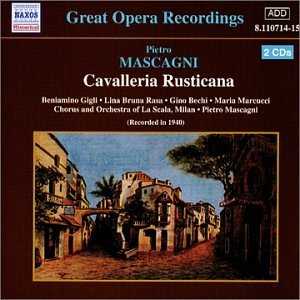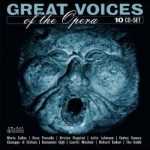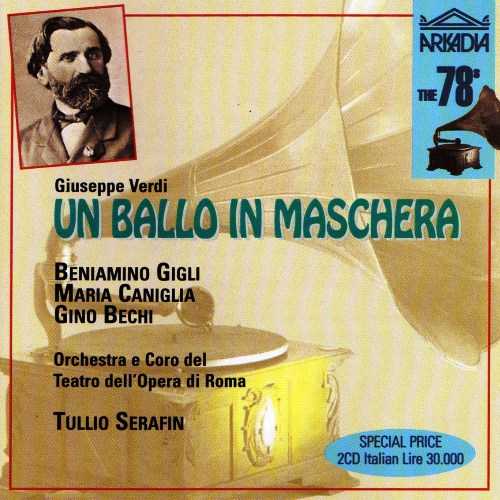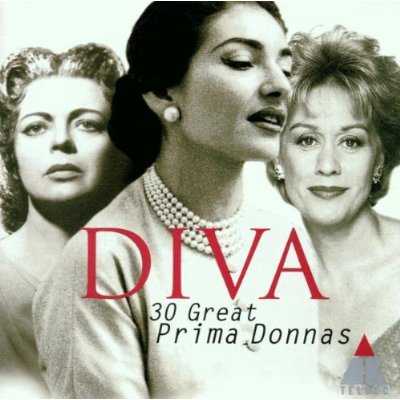
Performer: Beniamino Gigli, Gino Bechi, Lina Bruna Rasa, Giulietta Simionato, Maria Marcucci
Orchestra: Berlin State Opera Orchestra
Conductor: Pietro Mascagni
Composer: Pietro Mascagni, Gioachino RossiniRossini, Giuseppe Verdi
Audio CD
SPARS Code: ADD
Number of Discs: 2
Format: FLAC (image+cue)
Label: Naxos
Size: 288 MB
Recovery: +3%
Scan: cover
# Cavalleria rusticana, opera (melodramma) in 1 act
Composed by Pietro Mascagni
with Gino Bechi, Maria Marcucci, Giulietta Simionato, Beniamino Gigli, Lina Bruna Rasa
Conducted by Pietro Mascagni
# Overture to Il barbiere di Siviglia (The Barber of Seville)
Composed by Gioachino Rossini
Conducted by Pietro Mascagni
# I Vespri siciliani, opera (Les vêpres siciliennes) Overture
Composed by Giuseppe Verdi
Conducted by Pietro Mascagni
# L’ amico Fritz, opera (commedia lyrica) in 3 acts Intermezzo
Composed by Pietro Mascagni
Conducted by Pietro Mascagni
# I Rantzau, opera in 4 acts Overture
Composed by Pietro Mascagni
Conducted by Pietro Mascagni
# Guglielmo Ratcliff, opera (tragedia) in 4 acts Intermezzo
Composed by Pietro Mascagni
Conducted by Pietro Mascagni
# Iris, opera (melodramma) in 3 acts Inno al sole
Composed by Pietro Mascagni
Conducted by Pietro Mascagni
# Iris, opera (melodramma) in 3 acts Dances
Composed by Pietro Mascagni
Conducted by Pietro Mascagni
# Le maschere, opera (commedia lirica e giocosa) in 3 acts Overture
Composed by Pietro Mascagni
Conducted by Pietro Mascagni
pietro_mascagni_cavalleria_rusticanna02.rar – 156.6 MB
A strangely refreshing interpretation
I have many recordings of this work, and most are simply wonderful, full of fire and energy, and gripping to the extreme. Isn’t that what Verismo was supposed to be, a slice of life? I came to this recordings late in my study of this opera. I followed with the score, and yes, the composer himself doesn’t always follow what he wrote, but that makes me ask the question: is what he wrote really a true reflection of what he felt?
This recording is so slow, I mean SLOW, but at no time does it drag. I find it marvelous how the composer keeps movement, energy, and life in his work even though how he views his tempi are very different than how we see/hear them. Perhaps, through the years he mellowed and old age robbed him of the ability to conduct with great speed. Yet, something tells me that is not the case at all. Rather, with time, his view of his “first born” took on a different feeling for him, or maybe this was the correct feeling all along, but other conductors premiered the work and their interpretations of tempi, etc. became the norm.
Whatever the truth is, this is how he saw the work when he conducted it, and I am sure he heard many presentations of his opera over that 50 year period from the time it was created till the time he conducted it. There is a deep intensity of feeling in the music. It “Throbs” yet, it is not pushed, it is not rushed, it is not hectic. It is emotionally intense.
Some don’t like Gigli sobbing in his lines of when he expresses emotions, especially when bidding farewell to his mother. Yet, if one reads all the discussions on how verismo was performed, those sobs (done by both men and women) were the norm. Even some yelling was not considered WRONG. Now days, we are used to very “cleaned up” performances. Ones that go back to the manuscript, where every single high note tradition is removed. Emotions are confined to the notes and the musical line and NOTHING ELSE IS ALLOWED.
Well, this is not the standard of this recording, or of what the composer himself expected from his work. He chose the singers, and I am sure he chose them knowing full well they used those “theatrics” in their singing.
But now, to the singers. They are simply wondrous, to me, and even though this is such an “old way” of performing a verismo work, I find it gives a great depth to the music and the drama. I wish sometimes we could see such emotional theatrics in the theatre today, rather than all those ever-so-correctly sung interpretations. The Santuzza (Lina Bruna Rasa) may sound like she would take the rolling pin to Turridu if he did anything wrong, but let us put this in perspective: this woman has been dumped and excommunicated for her affair with this man, and frankly, he cares less. A rolling pin to the head may be what he needs. Lola (Maria Marccucci), wonderfully sung for such a small part, is the cheating little vixen she appears, and we all know she is going to cover up her sinful ways by pretending to be so pure. Alfio (Geno Bechi) is a very wronged husband. He enters the opera filled with promise and life, coming home from a long day at work (or week away doing work) to what he thinks is a loving home. We hear that in this performance, and we hear the heart break as he learns his wife is sleeping around (granted, he hears it from a wrong former girl friend of the man sleeping with his wife, so he has to endure her spite in the telling, which is wonderfully portrayed). His “Hate” toward Turriddu is thick, one could cut it with a knife, yet, he never raves. All is said with composure.
And we get to enjoy an early recording of Simionato near the beginning of her career. Mamma Lucia is not a big role, nor does it develop in any real way, but still we are treated to a wonderful singer singing her notes with truth.
The other recorded items are also very interesting. Mascagni obviously felt music his way. I would not say it was wrong or right. He just felt his tempi as he felt them and not as a mechanical device counting them out. Personally, I love the expression he adds to the work. Since all the metronomic markings are all in brackets, one is led to believe they were more suggestions than definite requirements.
Mascagni conducts other people’s music as he conducts his own, fully as he feels the various tempi markings. Sometimes, they are much slower than we are accustomed to, and as a conductor, he is not too fixated on “note perfection” and little slips do happen from time to time, but nothing is lost, or destroyed by this oversight. One is left wondering, what would Verdi have conducted like, or what of Bellini, or Wagner? Tempi are very different from composer to composer, and each style of music feels an andante differently. Mascagni felt things in a very expanded drawn out way, but at no time does he lose energy or focus as to where he intends to go. His singers obviously understood what he was after, for they never drag a line, or drop in their energy either.
This recording has its drawbacks, but it is a testiment to what a composer felt about his work, and we have so few of those. It reminds me of a discussion I had with a music teacher in my youth. In frustration with her I yelled, “When did you talk to the composer last?” She didn’t appreciate my remark one bit. Well, here we have the opportunity of actually hearing “what the composer wanted.” Whether we like it or not, is really very personal. It is very different to what we are accustomed to, but it is HIS final word on the issue, and with that we can all say to conductors, directors, and the lot who really frustrate us with how they do things, “Well, we have heard what the composer wanted, he documented that, so, how close are you to what he wanted?”




Oh, the great Mascagni again. Not listened since first viewing Scorcese’s “Raging Bull”, not a good film, but interesting music. Thank a lot as always!!
thanks a lot!